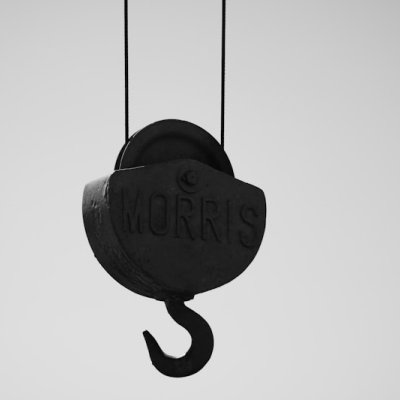Showing results for bun. Search instead for a bun.
- Dictionary
bun(
buhn
)A noun is a word referring to a person, animal, place, thing, feeling, or idea (e.g., man, dog, house).
1. (culinary)
b. el panecillo (M) (bread roll)
(m) means that a noun is masculine. Spanish nouns have a gender, which is either feminine (like la mujer or la luna) or masculine (like el hombre or el sol).
For lunch we only had some buns with ham and cheese.Para comer solo tomamos unos panecillos con jamón y queso.
c. el bolillo (M) (bread roll) (Mexico)
(m) means that a noun is masculine. Spanish nouns have a gender, which is either feminine (like la mujer or la luna) or masculine (like el hombre or el sol).
Regionalism used in Mexico
It smells like freshly baked buns.Huele a bolillos recién horneados.
2. (hairstyle)
b. el rodete (M) (River Plate)
(m) means that a noun is masculine. Spanish nouns have a gender, which is either feminine (like la mujer or la luna) or masculine (like el hombre or el sol).
The hairstylist made me a bun for my graduation.La estilista me hizo un rodete para mi graduación.
c. el chongo (M) (Central America) (Mexico)
(m) means that a noun is masculine. Spanish nouns have a gender, which is either feminine (like la mujer or la luna) or masculine (like el hombre or el sol).
Regionalism used in Central America: Guatemala, El Salvador, Honduras, Nicaragua, Costa Rica, and Panama
Regionalism used in Mexico
I like wearing a bun when it's very hot in the summer.En verano, cuando hace mucho calor, me gusta llevar chongo.
buns
A plural noun indicates that there is more than one person, place, thing, or idea.
3. (colloquial) (buttocks) (United States)
A word or phrase that is commonly used in conversational speech (e.g., skinny, grandma).
Regionalism used in the United States
a. el trasero (M) (colloquial)
(m) means that a noun is masculine. Spanish nouns have a gender, which is either feminine (like la mujer or la luna) or masculine (like el hombre or el sol).
A word or phrase that is commonly used in conversational speech (e.g., skinny, grandma).
My buns don't look good in these pants.No me gusta el trasero que me hacen estos pantalones.
b. las nalgas (F) (colloquial)
(f) means that a noun is feminine. Spanish nouns have a gender, which is either feminine (like la mujer or la luna) or masculine (like el hombre or el sol).
A word or phrase that is commonly used in conversational speech (e.g., skinny, grandma).
He fell and hit his buns.Se cayó de nalgas.
c. el pandero (M) (colloquial)
(m) means that a noun is masculine. Spanish nouns have a gender, which is either feminine (like la mujer or la luna) or masculine (like el hombre or el sol).
A word or phrase that is commonly used in conversational speech (e.g., skinny, grandma).
My buns hurt from sitting down all day.Me duele el pandero de estar sentado todo el día.
d. las posaderas (F) (colloquial)
(f) means that a noun is feminine. Spanish nouns have a gender, which is either feminine (like la mujer or la luna) or masculine (like el hombre or el sol).
A word or phrase that is commonly used in conversational speech (e.g., skinny, grandma).
This exercise is good for tightening the buns.Este ejercicio es bueno para endurecer las posaderas.
e. el traste (M) (colloquial) (Southern Cone)
(m) means that a noun is masculine. Spanish nouns have a gender, which is either feminine (like la mujer or la luna) or masculine (like el hombre or el sol).
A word or phrase that is commonly used in conversational speech (e.g., skinny, grandma).
The baby has a rash on his buns.El bebé tiene una irritación en el traste.
f. poto (colloquial) (Latin America)
A word or phrase that is commonly used in conversational speech (e.g., skinny, grandma).
Regionalism used in Latin America: all the countries in South America, Central America, and the Caribbean. Does not include Spain.
These pants make your buns look big.Estos pantalones te hacen el poto grande.
g. las pompas (F) (colloquial) (Mexico)
(f) means that a noun is feminine. Spanish nouns have a gender, which is either feminine (like la mujer or la luna) or masculine (like el hombre or el sol).
A word or phrase that is commonly used in conversational speech (e.g., skinny, grandma).
Regionalism used in Mexico
The fall left a bruise on her buns.La caída le dejó un moretón en las pompas.
Examples
Machine Translators
Translate a bun using machine translators
Other Dictionaries
Explore the meaning of bun in our family of products.
Random Word
Roll the dice and learn a new word now!
Want to Learn Spanish?
Spanish learning for everyone. For free.




















